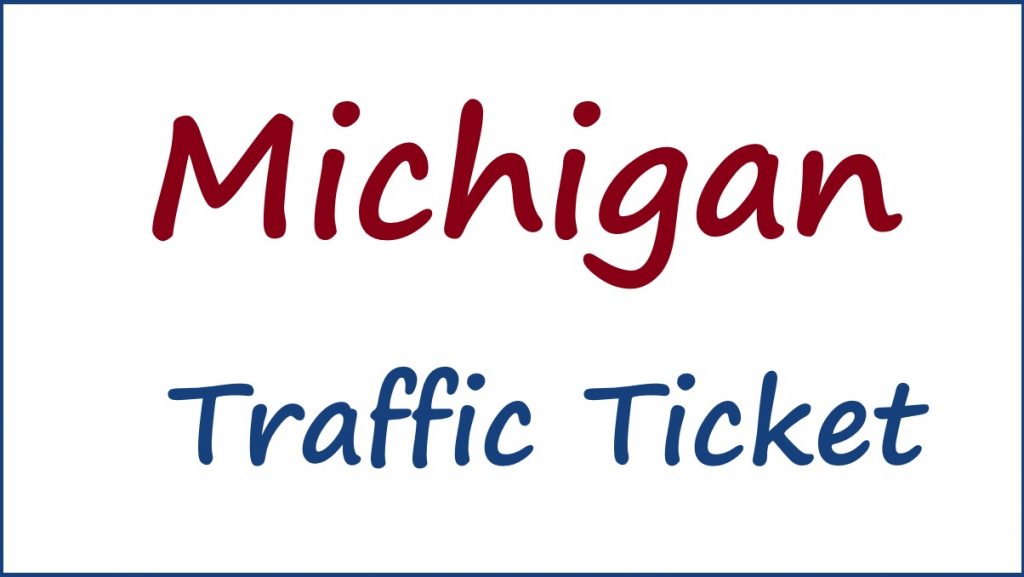2024 Michigan traffic and non-traffic civil infraction matters. Pay Ticket Online Michigan, Michigan Traffic Ticket Lookup. How to Respond to Non-traffic or Traffic Civil Infraction Michigan Ticket.
Michigan Traffic Ticket
Michigan traffic civil violation starts when a traffic officer issues a driver with a traffic violation ticket. The ticket states the offence and the traffic laws or vehicle codes, local laws you have violated which are similar to the state’s vehicle code. The traffic civil infraction is punishable by penalty or fines and doesn’t include a jail term. The law enforcement officer or traffic officer is the complainant while the driver is the defendant or offender of the law. The officer issues the ticket to the plaintiff who is either the Michigan state, city, village, township or any government unit.
For the non-traffic civil infraction begins if the traffic offer issues a driver with a uniform law citation or traffic ticket. The citation claims the driver has violated a state civil violation law or a municipal civil violation. The offence is penalized but doesn’t include a jail sentence. The law enforcement officer is considered as the complainant and is issuing the ticket to the plaintiff. The person receiving the ticket is considered as the offender or defendant. Besides the traffic law enforcer office, any authorized person can issue the non-traffic civil infraction tickets.
Pay Ticket Online Michigan

Types of Traffic and Non-traffic Civil Infraction Cases
Traffic violation in Michigan State
The standard traffic violation in Michigan State is:
- Speeding
- Reckless driving
- Not stopping a stop or red-light
- Driving without your seat belt.
- Failure to yield the right way
- Failure to obey traffic control device.
Non-Traffic Infractions
- If you disobey state land-use rules example the state’s forest or campgrounds.
- Carrying a concealed weapon without a legal permit.
- Violations in the city, village, townships etc.
- Excessive noise
- Inappropriate disposal of litter.
How to Respond to Non-traffic or Traffic Civil Infraction Michigan Ticket
Drivers who get the traffic violation ticket should ensure to read both sides of the infraction ticket. The ticket contains information about the offence—your legal rights on how to respond to the ticket, how and where to appear. The ticket will also include the fine to pay and where to pay or address to send the payment receipt.
The offender has the right to request a court hearing to challenge the ticket. In Michigan, most of the traffic and non-traffic infractions are heard by the district judge. The offender should locate the court, which is close to where the offence happened. The ticket also gives information about the court to appear for the hearing. You can respond in different ways, such as:
- Pleading guilty and paying the traffic violation fine.
The payment is made through an online process, by mail, using the phone to contact the traffic centre, or visiting the respective court.
- Requesting for mitigation
These are admitting responsibility for the offence but with an explanation. The mitigation process helps the violator acquire a reduction in fine, sending the violator for assessment programs or getting a monthly payment plan.
- Pleading not guilty requesting for an informal hearing.
The offender can request the court for an informal hearing. The process involves the defendant and complainant (officer) to explain to the judge what happened. In this type of case, the defendant cannot hire a lawyer.
- Pleading not guilty, request for a formal hearing
The offender also has the right to request a formal hearing. The prosecutor will show how the law was violated. For the formal hearing, the offender is allowed to get a lawyer for representation.
If the offender doesn’t react to the ticket using the above option, they face the risk of extra charges. The court will pass a default judgment. The court will contact the secretary of state who will add demerit points to your records. The state has the power to suspend the driver’s license. All traffic and non-traffic infraction cases are filled in court by the traffic officer. Who issued the traffic violation ticket, it’s then the offender’s responsibility to respond to the ticket. After this, the court has the right to process the case.
All violations are punishable by fines, penalties, or demerit points on your driver’s record. The court is not responsible for adding the points—the secretary of state as directed by law. Note the points appear on the offender records for two years. However, for the violation, it seems for 7-10 years on the records. Too many points will lead to probation or license suspension.